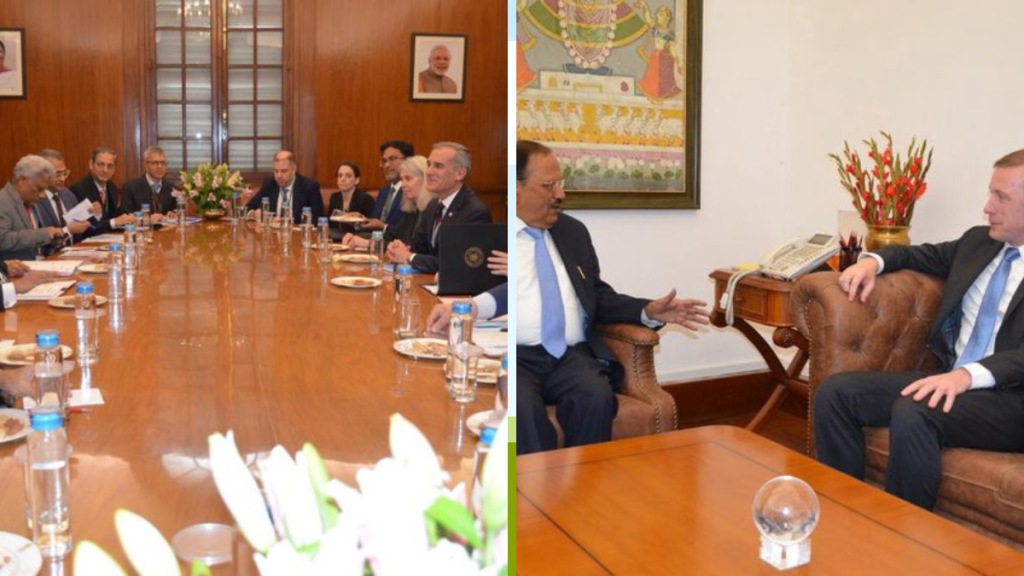US National Security Advisor Jake Sullivan’s farewell visit to New Delhi is an important moment for US-India relations, with substantial advancements on the horizon in civil nuclear cooperation. Sullivan announced that the United States is finalizing steps to remove long-standing regulatory barriers that have hindered collaboration between American nuclear companies and India’s leading energy institutions. This marks a significant breakthrough in a partnership that has been decades in the making.
The Road to Civil Nuclear Cooperation
The civil nuclear cooperation between India and the US, initially set in motion with the 2005 nuclear deal under President George W. Bush, has faced numerous challenges over the years. As reported previously by FinancialExpress.com, one of the main sticking points has been India’s nuclear liability laws, which stipulate that Indian operator, rather than plant manufacturers, are responsible for the financial fallout in case of an accident. This created apprehension among potential foreign suppliers, delaying India’s ambitious nuclear energy plans.
However, during his visit to India today (January 6, 2025), Sullivan confirmed that the US is on the verge of resolving these obstacles. “The United States is now finalizing the necessary steps to remove long-standing regulations that have prevented civil nuclear cooperation between India’s leading nuclear entities and US companies,” he declared. With this announcement, both countries are moving closer to formalizing agreements that will facilitate the transfer of US nuclear technology to India, which is eager to expand its clean energy capacity.
Key Engagements in New Delhi
Sullivan’s visit wasn’t just about nuclear issues. His address at the Indian Institute of Technology (IIT) Delhi on January 6 served as a platform to underscore the growing importance of the US-India collaboration, especially in critical technologies. The ongoing partnership under the US-India Initiative on Critical and Emerging Technologies (iCET) has focused on cutting-edge fields like artificial intelligence, quantum computing, space, and defence.
He highlighted the potential of the India-US relationship, particularly in the context of the Indo-Pacific region. “Our relationship with India is crucial for peace and stability in the Indo-Pacific,” he stated, stressing the importance of these two democracies working together to maintain a free and open region in the face of rising global challenges, especially from China.
Furthermore, he pointed to the role of Indian innovators in shaping the future of technology. He celebrated the success of iCET, an initiative that fosters cooperation between the two nations in emerging fields. “Advanced technologies of the future should drive our partnership forward, shaping a better world for everyone,” he noted.
High-Level Talks with Jaishankar and Doval
In addition to his speech at IIT Delhi, Sullivan held discussions with key Indian leaders, including External Affairs Minister S Jaishankar and National Security Advisor Ajit Doval. These talks centered on strengthening bilateral relations and expanding cooperation on regional and global issues.
Jaishankar took to social media to highlight the significance of his meeting with Sullivan, appreciating the NSA’s “personal contribution” in bolstering US-India ties over the past four years. “We continued our ongoing discussions on deepening bilateral, regional, and global cooperation,” Jaishankar wrote, reflecting the warmth and mutual respect that has characterized the growing diplomatic engagement between the two countries.
His meeting with NSA Ajit Doval also focused on shared security priorities, particularly in the Indo-Pacific region. The two discussed a range of issues, from defence cooperation to space and technology collaboration. Sullivan’s recognition of Doval’s role in strengthening the India-US partnership was particularly notable. He praised Doval for his vision in making iCET a success, stating, “iCET is truly a people’s initiative, but in many ways, it owes its success to one man—Ajit Doval.”
The Path Forward: What’s Next for US-India Relations?
His remarks and engagements have set the stage for a new chapter in US-India cooperation. The removal of regulatory barriers to civil nuclear collaboration will open the door for significant progress in India’s nuclear energy sector. If all goes according to plan, the United States could soon supply nuclear reactors and technology to India, helping the country meet its ambitious energy targets while promoting clean energy initiatives.
Beyond the nuclear deal, the iCET initiative holds immense promise for the future of US-India ties. As both countries continue to collaborate on emerging technologies, they are not only strengthening their economic and strategic partnership but also shaping the global technological landscape for the years to come.
With both nations committed to pushing the boundaries of innovation and addressing global security challenges, the US-India alliance is poised to play a central role in shaping the 21st-century geopolitical order.

